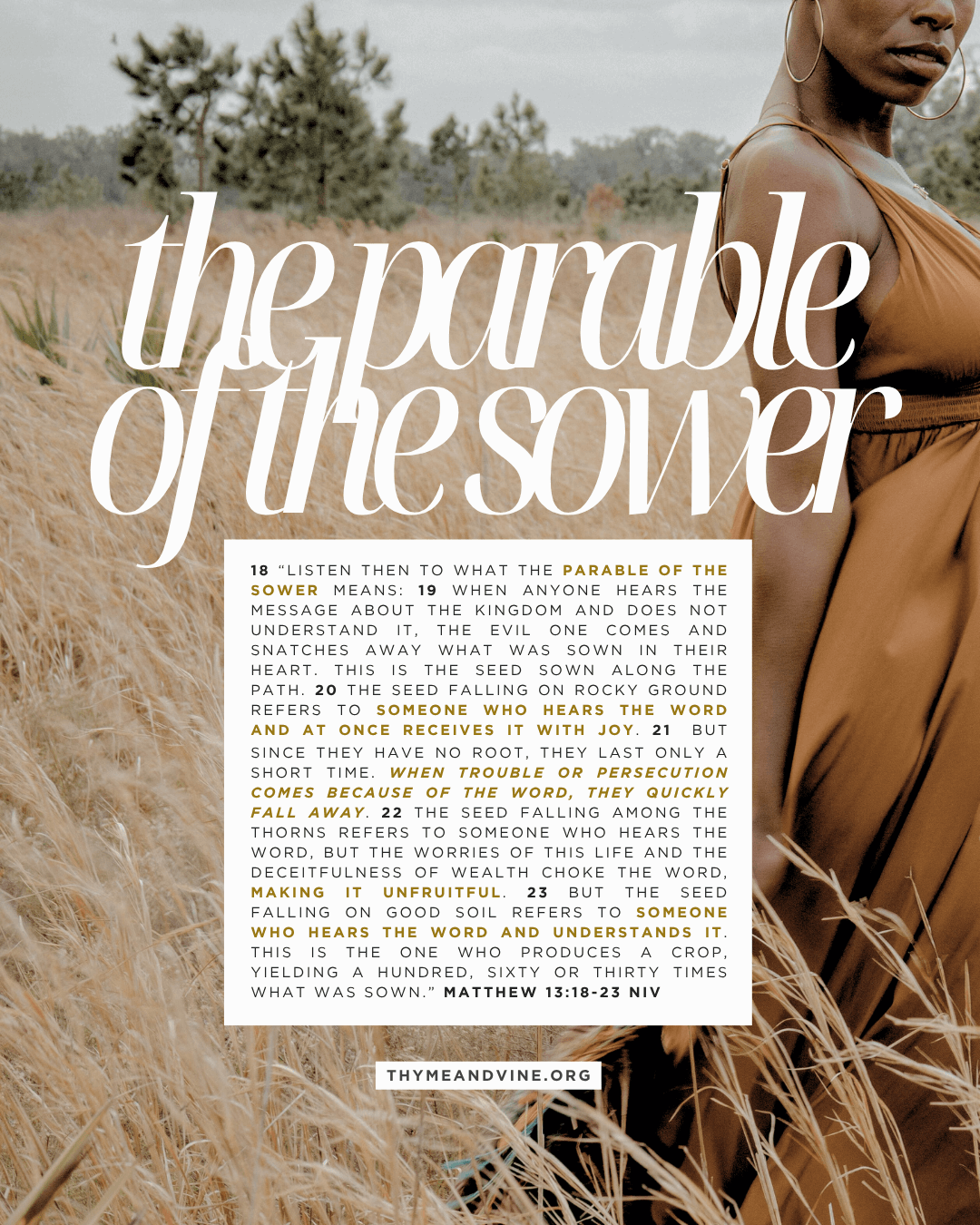How to Study the Bible for Beginners (Part I)
A Brief Introduction to the Woman of God Behind the Blog
Hey y’all. If this is your first time here, my name’s Chase, and I’m like an… anonymous blogger who’s talking about her real life in the internet… diary style. If you can get all that. I’m sharing testimonies, resources that I’ve picked up along the way that have helped guide me down my path with Yahuah and— we’ll get to that Yahuah thing in a minute, by the way.
Anyway, my name is Chase. You just won’t find actual pictures of me on here because well, the Most High hasn’t called me to that. Maybe it’s for my ego, maybe it’s because sometimes people can be a little crazy (if you know, you know 👀). Regardless, I was moved in 2024 to start this blog and I wanted to do it my way. Now that I’ve submitted this thing completely to the Most High, I have to expose myself because there are people out there that could benefit from my experiences and what He’s gonna have me say. There are people out there that are asking the same questions I was asking of church leaders who didn’t want to stop gatekeeping the answers.
It’s one thing to tell budding believers in Christ that you’ve got to go to God about the answer for something. It’s another thing when He’s given you resources for when you asked the same question or walked down a similar path, and you’re unwilling to help your fellow brothers and sisters in Christ get closer to Him with that same access.
I wanted to preface all of what’s going to come after this with that because the next three blog posts are pretty much like my… starter series, if you will. It’s going to break down with visual how I study the Word of the Most High Yahuah, and touch on a subject that is really close to my heart because… well, it’s close to His.
Let’s go.
TABLE OF CONTENTS
Let's Get Personal: Here's How to Study the Bible Effectively
So Here's How I Study the Bible in Depth
Studying the Bible is Gonna Require You to Take Notes
Here's How I Study the Bible Using the Strong's Concordance
Here's Why It's Important to Study the Bible in Context
Studying the Word of God Isn't an Aesthetic, It's a Lifestyle
And That’s How I Study the Word of God!Let's Get Personal: Here's How to Study the Bible Effectively
Our first definition, because this is really how my study method starts and ends, is going to be understanding the word “gratitude.” This is a big deal because when I was first studying what I’ll call our founding scripture for this three part series, I was blown away with how deep the word got. Gratitude disables the enemy from keeping you bound by a murmuring spirit, you see. It’s powerful. Holding gratitude for what the Most High has done or is doing (or even will do) in your life? It helps you better acknowledge what you do have and how well you actually are equipped to carry out what the Most High is placing before you in your current season.
Here’s our founding scripture we’re gonna use to study, and give you first hand experience with how I was trained by the Holy Spirit (or Ruach) to read the Word for myself:
16 But blessed are your eyes, for they see: and your ears, for they hear.
17 For verily I say unto you, That many prophets and righteous men have desired to see those things which ye see, and have not seen them; and to hear those things which ye hear, and have not heard them.
Matthew 13:16-17 KJV
What we see in these two verses (we’re gonna start with just two, because there’s a lot packed in those two!) is a breakdown of Yahusha explaining to the disciples that what they were experiencing was something to be grateful for. They not only had direct access to the Word of Yah (as Yahusha is the Word made flesh) but they were getting understanding of that Word straight from the source. It was something that prophets and Levites and other messengers of the Most High would have loved to experience in their lifetimes. And He was giving these breakdowns to them and not to all of the people who were following Him because not everyone that was traveling with Yahusha HaMashiach in the multitudes that surrounded His ministry had eyes to see and ears to hear what He was giving to them. They had their hearts closed to the revelation of who He truly was (I’m looking at you Pharisees).
Your heart posture, as explained in the Parable of the Sower, is what allows you to either receive or reject the Word of Yahweh. I mean, the Parable of the Sower? Only one out of the four seeds made it— let that sink in. So the Most High is letting us know right off the bat that hey, this walk that you’re going on? There will probabbbllyyy be some things you could complain about. Really. He’s not gonna gaslight you into thinking there’s not. Should you? That’s where the renewing of your mind daily comes into play, to help you not to do that. To help you to keep your mouth shut and your thoughts set on better things, more uplifting things. Because if not, those thoughts can fester and turn into a bigger situation than what you’ve already got. Bitterness is no joke, lemme warn you.
Anyway, when it comes to how I study, I take my time researching what I’m looking at in the Good Book. The subject? It’s gratitude. I’m getting an idea, a hint that Christ was trying to get across that the people before Him at the time that He was speaking weren’t seeing the value of what was right in front of them, they weren’t getting it. Only a few of them were, which were the disciples at the time of Him speaking, and when you look at the figures? There were twelve of them, but Yahusha was usually in front of some BIG CROWDS. 👀 Only 12 out of however many hundreds or thousands of people? That sounds like ¼ of the four seeds to me! (Are you getting it??)
Let’s go into deeper waters, because we’re gonna have to example the context of the two scriptures we’re using— which is a part of my method. You can’t just take the two scriptures we’re focusing on out of context. We have to look at the whole thing. But before we do that? We’re gonna investigate what gratitude is and what the original root word for blessed was from Matthew 13:16 is. Because we have to know if gratitude even has anything to do with our founding text. Is it going to be gratitude that we come up with when we look up blessed, or is it gonna be another word altogether? Let’s dig in!
SO HERE'S HOW I STUDY THE BIBLE IN DEPTH
So let’s start with what gratitude is not— it’s not a murmuring spirit. I mean, you can go to places like Thesaurus.com and find good antonyms of the word (which I was really surprised to find that condemnation is an antonym of gratitude??) like I did, or you can let the Spirit lead like I did as well. When the Spirit led me, He didn’t want me to go down the condemnation route, but to focus on the Word murmur, and the spiritual context of a murmuring spirit. That’s revelation. That’s studying the Word of God after asking the Holy Ruach to guide you through it. So let’s go further down this rabbit hole to see what He wants to reveal to us today. 🥰
The word murmur, as described by the Oxford Advanced American Dictionary, is “a low continuous sound in the background” and specifically, in medical terms, “a faint sound in the chest, usually a sign of damage or disease in the heart.” It’s a recurring sound, meaning that it speaks. And it keeps speaking, and speaking, and speaking. And when it speaks, it’s a voice that’s coming out of the heart of a man.
A good man out of the good treasure of his heart bringeth forth that which is good; and an evil man out of the evil treasure of his heart bringeth forth that which is evil: for of the abundance of the heart his mouth speaketh.
Luke 6:45 KJV
Sooooo when you’re pissed off and playing out scenarios in your mind of what you wanna say to somebody, when you’re grumbling about obeying God and stepping away from a person or situation He wants you to have nothing to do with, or when you’re even just scrolling on social media and you can feel the covetous jealousy rising up as you doom scroll because how is life even fair with Jessica sipping Mai Tais in the Bahamas right now while you’re trying to avoid getting ready for work??? (No shade, Jessica, you were just there.) Seriously, tho. You’ve had those moments and you know it. These small situations can lead to bigger issues if you let them become habits you engage in day after day after day. Is it normal to wanna throw Jessica off a cliff while you’re clocking in? Sure. But what you dwell on consistently, that’s what builds up inside of you to the point that eventually, it manifests outwardly.
And this is what it means to know and understand that everything begins spiritually before it manifests physically. We’re gonna touch on that more in a bit.
So the murmuring spirit bit. A murmur is basically this low, continuous, evil sound happening as background noise in life. If you don’t have the ears to hear, as Yahusha mentioned in Matthew 13:17, you’ll miss it if it’s switched on in your life. A murmuring spirit is trying to lull you into a diseased state. And it’s not something that is active outside of you, no, it wants to invade your life by popping up in your chest. Where your heart is. It wants to bind you emotionally so that you’re thinking about things you have no business thinking about, so that you start talking about things that are none of your business and then begin doing things that you shouldn’t be doing too. Like lashing out at Jessica at 3am and calling her outside of her name because she’s a spoiled, bragging witch. (It sounds crazy but haven’t you ever been the target of someone trying to make you feel like you’re rubbing your success in their face when you have a win??) A murmuring spirit is then essentially the antagonist to gratitude in the game. And so, continuing our research phase, we’re gonna get to the definition of what gratitude is and what that blessed word really means too.
STUDYING THE BIBLE IS GONNA REQUIRE YOU TO TAKE NOTES
According to the Oxford Advanced American Dictionary, gratitude is described as, “the feeling of being grateful and wanting to express your thanks.” (Not too helpful if you don’t know what grateful means.) So let’s dive deeper: Grateful is described as, “feeling or showing thanks because someone has done something kind for you or has done as you asked” [1].
The root of the word gratitude is where things really get interesting. It’s thought to possibly come from the Latin word gratitudo, whose root word is gratus ‘pleasing, thankful’ (Oxford Advanced American Dictionary). When we understand these three definitions, we can further see and recognize what Matthew 13:16-17 is saying.
22 But the fruit of the Spirit is love, joy, peace, forbearance, kindness, goodness, faithfulness,
23 gentleness and self-control. Against such things there is no law.
Galatians 5:22-23 NIV
Kindness is one of the fruits of the Spirit of Yah. We know that fruit starts as a seed, that it’s ultimately going to try to root into something. That’s what seeds do. So when we’re talking about the Spirit of God dwelling within you and being able to operate in His fullness, the goal is to start bearing the same fruit mentioned up here in Galatians. That’s one of the goals of being a Bible believer. For all of us. Going back to our study, though, as far as gratitude and how to dissect the word, we have to back up.
Is being blessed really about being grateful? That’s what we were going for, but we found these cute little awesome love nuggets in the Word as we studied with the Spirit of God (cool, am I right?) That’s what meditating on the Word is like. You might get off on something, you might come back to the focus point (our focus point being our founding scripture), you might need to take a nap because what you find is too surreal to handle for a moment. My method of studying the Word is all that. But for the purposes of this bible study session, we’re gonna reroute back to the word grateful because our next assignment was to figure out if the word blessed used in Matthew 13:16 means gratitude or not. Because when I first read it, and maybe you did this too, I took that portion of the Parable of the Sower as Christ telling us that we better be grateful that we were born “for such a time as this” basically. I was surprised to find out what it really means.
HERE’S HOW I STUDY THE BIBLE USING THE STRONG’S CONCORDANCE
Now I use the Blue Letter Bible app. It’s on my phone, it’s on my tablet, and when I’m typing on a desktop or laptop like this? I can pull up the website to help me investigate thoroughly. I mean, I am Where’s Waldo with it, for real. 😂 And in this case, we’re gonna be taking advantage of the Strong’s Concordance aspect of the BLB so I don’t have to pull out my physical copy. And, honestly, so you can see what I’m seeing as I look these things up.
So our founding scripture is Matthew 13:16-17. (You still with me?) In the BLB app or online, you’re gonna pull it up by searching it, like I did here:
Now that we’re both there, you can see the two scriptures are highlighted, and now we can take advantage of this genius little tool.
By either hitting the “tools” button or just the first scripture next to the text (the “Mat 13:16” part that’s linked in dark blue), you’ll see all this stuff begin to drop down into Interlinear mode. It’s showing you the scripture in the original Greek (wild, right?) and it’s breaking down each word that was in English into the Greek translation… while also providing a cool little number beside each word. That number? Listed under what says, “Strong’s” ?? Yeah. That’s the correlating number for where you can find that word in the Strong’s Concordance. The correlating number for the word blessed here is G3107. And this is where our investigative skills pay off and we find out what Yahusha really meant by, “blessed.”
According to the Strong’s Concordance, the word blessed in our English translations, was originally the word “makarios.” And the word makarios? Well, it doesn’t mean grateful. Not at all. It means happy. And not only happy, but like, “supremely blest; by extension, fortunate, well off:—blessed, happy” [2]. So Christ isn’t saying here to be thankful, no. He’s saying, get glad. Because happy, if you didn’t know, is synonymous with gladness. When we look up the word happy, The American Heritage® Dictionary of the English Language shows us that happy means, “Enjoying, showing, or marked by pleasure, satisfaction, or joy. synonym: glad.”
Well whoa whoa whoa. Didn’t we read earlier with Galatians 5:22 that joy was a fruit of the Spirit? Of the Holy Spirit? Meaning that there’s a seed that needs to be planted somewhere for that joyful fruit to take root and grow? Where’s the seed coming from? That seed, my friend, is coming from seeing and hearing the Word of God and getting revelation, because that’s what He ends up telling us in Luke 11:28.
But he said, Yea rather, blessed are they that hear the word of God, and keep it.
Luke 11:28
Now there are other times that Yahusha told us that we were blessed. You can see examples of these in Matthew 5:3-11, Luke 12:37-43, and so on. But right here, in this particular passage, we have something interesting that comes out of the scripture, because remember when I mentioned we were gonna example the entire Parable of the Sower? Yeah, now it’s time for us to dig into that.
HERE’S WHY IT’S IMPORTANT TO STUDY THE BIBLE IN CONTEXT
Matthew 13:16-17, if you didn’t know it, is a portion of what is called the Parable of the Sower. The whole parable or allegory is contained in Matthew 13:1-23. It’s not long, it’s not a lot, but it’s got a lot of meat in it. Because when you scroll down in your Bible to verses 18-23 in particular, Yahusha explains to the disciples what the parable means. Let’s look at it here:
18 “Listen then to what the parable of the sower means:
19 When anyone hears the message about the kingdom and does not understand it, the evil one comes and snatches away what was sown in their heart. This is the seed sown along the path.
20 The seed falling on rocky ground refers to someone who hears the word and at once receives it with joy.
21 But since they have no root, they last only a short time. When trouble or persecution comes because of the word, they quickly fall away.
22 The seed falling among the thorns refers to someone who hears the word, but the worries of this life and the deceitfulness of wealth choke the word, making it unfruitful.
23 But the seed falling on good soil refers to someone who hears the word and understands it. This is the one who produces a crop, yielding a hundred, sixty or thirty times what was sown.”
Matthew 13:18-23 NIV
The Word is the seed. He tells us point blank the WORD OF THE MOST HIGH GOD is the seed. The fruit of the seed of the Word of the Most High is then joy, peace, faith, etc. All those things mentioned in Galatians. That’s the fruit. To get it to grow, you can’t just be glad about reading it, you have to get understanding. He told the disciples point blank to be glad to get the understanding, not just the parable, because other people were getting the parable without the understanding. Good ground that a seed (the Word of God) can take root in is a heart that seeks to understand what the Word of God is speaking to them directly. That is SO GOOD but we’re not gonna just stop there. Because if the understanding is how the seed roots, what was the Greek word for understands in verse 23??
Maybe I’m getting ahead of myself, let’s break here for a minute and go back to another thought. But we’re gonna come back to that!
I don’t wanna miss the part where Yahusha was letting the disciples know that the seed is the Word (we all got that) BUT! BUTTTT!!! There is an enemy who is looking to pluck up that seed. 👀‼️ The Parable of the Weeds, illustrated in Matthew 13:24-30 lets you know that the enemy also wants to plant where the Most High is aiming to plant: in your heart, my friend. Same place, they’re competing! They’re both after that territory, and from experience? Things like bitterness? Yeah. That’s something HaSatan is trying to plant. And murmuring spirits, those things manifest after something has been planted in your heart. That Oxford Dictionary definition let us know a murmur is the effect of something having been planted in the heart that is a sign of damage or disease. If you’re going around mumbling to yourself or in your head all the time about how bad your life is or this or that going on, it’s a sign that something is wrong with your heart.
You like that break down? That’s how I start my research when looking at a bible verse in the Word.
STUDYING THE WORD OF GOD ISN’T AN AESTHETIC, IT’S A LIFESTYLE
But without faith it is impossible to please him: for he that cometh to God must believe that he is, and that he is a rewarder of them that diligently seek him.
Hebrews 11:6 KJV
So this is the meat of Part I, my friend: the research stage. You can see that with my method of studying the Word, it’s just a bunch of rabbit holes through dictionary definitions, while allowing myself to be led by the Holy Spirit of the Most High Yah. That’s it. I ask Him, “hey, can you explain this to me?” And guess what? He does! And we go through it together, and I look up a bunch of stuff. Bam. That’s something the Holy Spirit had to teach me that just… wasn't being taught in the churches I belonged to. And when I took notes in sermons so that I could look things up and try to ponder on them later? Yeah. I’ve even been told my note taking was distracting by a fellow church member after a service. 😂 I wish I was making this up, but I’m noootttttt. 🤦🏾♀️
Before we move onto the next phase of my bible study session, I wanna go back to that word understands from Matthew 13:23 NIV.
Understands, as the Strong’s Concordance goes on to tell us, in Greek is the word, “syniēmi” and it means, “to set or to bring together.” So basically… lemme get this straight… the person with good soil in their heart allows the Word to set or bring together… bring together what? Let’s look at this further.
“To set,” the Concordance goes on to say, “or join together in the mind” is what it means. The Word needs to be joined together in the mind. But… okay. It’s interesting, because this is insinuating that the soil is in your head when the scripture CLEARLY SAID in verse 19 that it was the heart. Luke 6:45 also goes into saying that what we speak comes from the heart. Not from your head, your heart. So is the heart the mind? If thoughts come from the heart, does the Most High consider… you see how the rabbit hole can take over rather quickly??
And That’s How I Study the Word of God!
This research stage can be willllddd, my friend. But I hope that you got as much joy as I got out of it, y’know, sharing all my secrets with you. The research stage is fun because, like I've said elsewhere on the blog, it’s the stage where you pick a topic (for me, the topic was gratitude) and you go and see what the Word of God has to say about it. I was led, by the Holy Spirit, to start in the Book of Matthew. It didn't disappoint, as you can tell! 😂 In our next session, we’re gonna break down phase two of my study method. Things are gonna get good and I hope you stick around!
I truly pray that you’ll come back and continue bible study with me! It’s really been a lot of fun. ☺️
Until then, much love, my friend! 🫶🏾
LOVE IT? SHARE WITH FRIENDS ON PINTEREST
KEEP READING…
REFERENCES
“Grateful, A. (1).” Oxford Advanced American Dictionary, www.oxfordlearnersdictionaries.com/definition/american_english/grateful?q=grateful. Accessed 25 January 2024.
“Makarios, A. (I.)” Blue Letter Bible, Thayer’s Greek Lexicon, Strong’s G3107, https://www.blueletterbible.org/lexicon/g3107/kjv/tr/0-1/. Accessed 25 May 2025.








